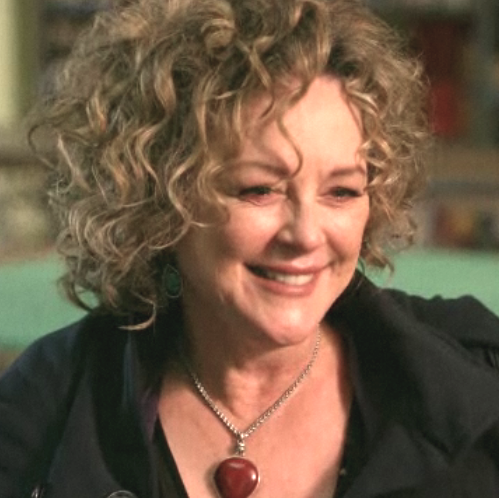
A particularly powerful installment of ‘Modern Love’ in this past weekend’s NY Times by Janice Wilberg, which touches on issues of adoption, intractable sin and one-way love, “Fury Cannot Touch Me.” The story of a mother’s volatile relationship with her adopted son and his daughter, it’s a beautiful description of the sort of non-self-interested love that is born when a painful attachment dies. Intervention and judgment (and worry) not only fails Mrs. Wilberg, it fails to have any lasting effect on her son or his broken situation. All her options exhausted, she stops trying to fix or figure out her son’s problems, and the ensuing acceptance yields not only some much-needed personal peace, but also a capacity to enjoy and care for her granddaughter non-anxiously – and the little girl can clearly tell the difference. Go figure:
It came as no surprise that [my son] and his wife had parted ways again. Their six-year relationship is like a steel ball in an old pinball machine, with a lot of spring action, lights flashing and nervous ping, pinging. As in the game, sometimes they manage to keep the ball moving a long time before it falls into the “game over” hole. It’s impossible to predict.
In the beginning I would get in the middle of their disputes. She would slam him on Facebook, and I would jump to his defense, careening from anger at her for trashing him on social media to being furious with him for his behavior. When they had a baby, my aggravation and disappointment boiled over into alarm. The baby is going to be hurt by all of this, I thought. Their crazy relationship is going to damage her.
The consequence of feuding with someone who is impervious to disapproval is that the grudge is unreciprocated, quickly depriving the silent treatment of its oxygen. In the same way that it’s hard to keep yelling at someone who whispers in response, spats with my son quickly dissipate, no matter how extreme the dispute. One reason is he simply forgets…
[After a number of major fall-outs] I decided I just wouldn’t get involved in their problems anymore. I imagined myself with duct tape across my mouth, letting my thoughts rage as they always have but not giving them voice. I watched what I said, mindful that my son and daughter-in-law could end [my granddaughter’s] weekly visits and pull the rug out from under our happy little weekend life, the two of us and our adorable little charge.
But then the careful treading morphed into something more substantial. When our granddaughter started to be dropped off at our house by another man, her mother’s friend, and our son disappeared from the scene altogether, we had to recalibrate. Who were we now as the grandparents of a child born to an adopted son who had exited his relationship? What standing did we have? How could we sustain a relationship with our precious little weekend guest through all of this?
Throughout our family life, my husband has left the volatility management to me. For better or worse, it has been my instincts, often extreme and counterproductive, that have governed our relationships with our children and other family members. Often I’m right, but many times I’m wrong and act impulsively in ways I regret.
This time, though, I had it right. I just let go. And I don’t know how I did it. But I stopped caring what my son and his wife did. I stopped caring what they did with or to each other, although I was happy when they reconciled, but then sad when I saw that garbage bag on the porch. I stopped wondering and second-guessing how they were raising their daughter, deciding that since she showed up every Friday looking perfectly fine I ought to assume her parents’ care was O.K. I let go of fussing about school when she showed me her Perfect Attendance pencil, stopped worrying that she rarely saw a doctor when I realized she was hardly ever sick.
I didn’t just stop voicing my opinions; I stopped having them. I let the joy of being with a 5-year-old soak up the editorializing and tsk-tsking. My husband and I laughed about having a do-over, enjoying things with our granddaughter that had been chores with our own kids. We let ourselves be surprised. We let our son and his wife off the hook.

COMMENTS
Leave a Reply














